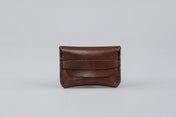Wearing traditional sneakers and running shoes pad and protect your feet, but they also restrict natural movement and alignment. That's why a transition to minimal shoes can be so beneficial for your foot health.
Minimalist shoes allow your toes to splay naturally, which helps prevent the formation of bunions. They also have a wide toe box, so they're more comfortable for long periods of walking.
Less Impact on Your Joints
Whether you're a runner or simply an avid walker, the simple act of wearing barefoot shoes can have many benefits for your body. Not only can it reduce the stress on your joints, but it's also a great way to relax and improve your general mood.
While some people may feel some soreness when first switching to barefoot shoes, this is usually due to the change in loading demands on your feet and ankles. There's no one-size-fits-all answer here, so take it slow and be patient!
Researchers found that running barefoot compared to wearing conventional running shoes significantly reduced the force affecting the knee, hip, and ankle. This can be beneficial for reducing knee osteoarthritis and other knee problems.
Better Posture
When you walk on traditional shoes that have a heel that is raised above your toes, you put pressure on your feet and lower back. This can lead to overuse and chronic strain, which contributes to back pain.
Barefoot shoes, on the other hand, hug your feet's natural curve and support your spine. They also encourage better alignment, which strengthens your foot muscles and makes them more capable of controlling your body movement.
This, in turn, helps improve posture. In addition, walking or running with barefoot shoes can help reduce stress and anxiety in your life.
More Stability
Wearing shoes that don't support your feet correctly can make them weaker, which is why many weightlifters and runners prefer barefoot shoes.
Barefoot shoes are made to support your feet as they would naturally, without any additional padding or inserts. These shoes also have thin soles that allow for maximum ground feedback, which improves proprioception and helps you to stay balanced.
You'll notice that your gait will change when you switch to barefoot shoes, so it's important to acclimate at your own pace. However, once you get used to them, you'll be able to do everything you were accustomed to doing in them!
In addition, wearing barefoot shoes every day can help you build more toe strength. Strong toes can help to reduce the risk of knee and hip injuries, so they're a great way to keep yourself injury-free.
Better Balance
There is an increasing amount of evidence that wearing barefoot shoes every day can improve your balance. This is because barefoot shoes don’t compress the toes as much as conventional footwear, and they allow your feet to move in their natural manner to help you maintain balance while standing, walking, and running.
Traditional shoes have a lot of support features that change how your feet move, including cushioning and arch supports. These features stop your muscles from needing to work as they should, which leads to weakened muscle strength in the feet and legs over time.
Increased Proprioception
The bottoms of your feet have proprioceptive nerves that transmit this information to different areas of your brain, which is responsible for movement coordination, balance control, and spatial perception. Barefoot footwear helps optimize this foot-brain connection, according to research.
To conduct this review, we selected observational cross-sectional studies that compared habitual barefoot and habitual shoe users over long periods of time. Included outcome measures included kinematic, kinetic and muscle activity/behaviour variables. Linear mixed effect models were used to examine the main effects of footwear (conventional vs. minimal, barefoot) and visual condition (eyes open vs. eyes closed).




